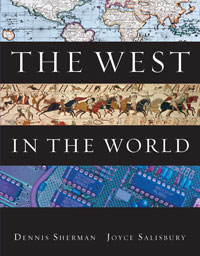1 A) Vladimir Lenin. B) Wolfgang Kapp. C) Karl Liebknecht. D) Friedrich Engels. 2 A) Berlin. B) the Ruhr Valley. C) the Reichstag. D) Vichy. 3 A) lowered Germany's redemption payments. B) made provisions for the withdrawal of occupying forces from Germany. C) guaranteed Germany's frontiers with France and Belgium. D) admitted Germany to the League of Nations. 4 A) the division of labor into thinking by managers and physical labor by workers was extremely important for productivity. B) the division of labor would make work mindless and repetitive for laborers. C) a conveyor belt could make most types of manufacturing more efficient. D) a happy worker was a productive worker. 5 A) television. B) radio. C) newspaper. D) novel. 6 A) Yugoslavia. B) Hungary. C) Poland. D) Romania. 7 A) Mussolini was appointed prime minister by King Victor Emmanuel III. B) Mussolini was arrested and served two years in prison. C) Mussolini became a radical journalist. D) Mussolini organized a group known as the National Fascist Party. 8 A) continuing the civil war policies of war communism. B) nationalizing all industry, large and small. C) creating large collective farms. D) providing for a temporary compromise with capitalistic economic policies. 9 A) growing support of the government by the wealthier peasants, or kulaks . B) the collectivization of over 90 percent of the land within ten years. C) an effort to eliminate kulaks as a class. D) a severe famine in which millions of people died. 10 A) produced an economic depression confined to the United States. B) did not produce hardship among the population at large. C) produced a global depression that affected the U.S., Europe, and Asia. D) was caused by Germany's default on reparations payments. 11 A) take over the local government in Munich. B) force Hindenburg to appoint him as chancellor. C) take over the National Socialist German Workers' Party. D) fix elections to the Reichstag. 12 A) purge his paramilitary organization, the SA. B) strike out against Jewish businesses and vandalize Jewish residences. C) take over top positions in the government. D) attack centers of modern art and literature. 13 A) by inventing the "installment plan" B) by inventing the department store C) by inventing techniques of "scientific management" D) by inventing the aviation industry 14 A) Modernity was welcomed and embraced by all groups. B) New forms of media revolutionized popular entertainment. C) Attitudes towards female sexuality changed. D) The literature of the period displays prevailing feelings of insecurity. 15 A) Markievicz B) Gandhi C) Stresemann D) Ben Gurion 16 A) Stresemann Plan B) Luxemburg Plan C) Dawes Plan D) Coolidge Plan 17 The Waste Land , which demonstrated the artistic ethic of post-WWI society?A) T. S. Eliot B) Fritz Lang C) Sergei Epstein D) Otto Dix 18 A) Lindberg school B) Dix school C) Nietzsche school D) Bauhaus school 19 A) Kafka B) Nietzsche C) Spengler D) Joyce 20 A) Dada movement B) existential movement C) romantic movement D) classical movement





